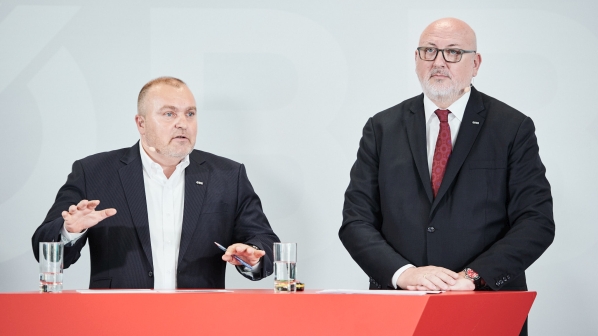The passenger division carried a record 261 million passengers, up 6.9% from 244 million in 2017. Passenger numbers have increased 25% since 2008. Long distance services carried 37 million passengers, including 1.4 million on Nightjet services. The passenger division earned an EBT of €91m, up 4.5% from €87m in 2017, more than half of the Group’s total EBT.
Rail Cargo Group (RCG) once again the strongest selling subgroup, with revenues increasing 4.5% from €2.2bn in 2017 to €2.3bn last year. However, earnings development remained below expectations, with an EBT of just €24m, down 42% from €42m in 2017 and an earnings before interest and tax (EBIT) of €53m. The lower EBT was caused by increased competition from road freight. The drop in EBT was attributed to strong competition from road transport, as well as rising costs and currency losses.
ÖBB CEO Mr Andreas Matthä says the outlook for RCG is not good, and a small loss recorded in the first quarter of 2019 must be quickly reversed.
“The fact is: everything speaks for the transport of goods by rail,” Matthä says. “The railway is the most environmentally friendly mode of transport. With Rail Freight Forward and Noah’s Train, RCG took clear steps to increase the share of freight transport by rail in Europe from 18% to 30% by 2030.
“The sticking point here, however, is the framework conditions. There needs to be more fairness compared with road transport.”
RCG Group is still the number two rail freight carrier in Europe by tonne-km, behind DB Cargo and ahead of PKP Cargo. It currently has a 71.7% share of the rail freight market in Austria and 50.1% in Hungary.
The infrastructure division reported EBT of €45.3m, down 3.8% from €47.1m. Staff numbers rose slightly from 41,107 in 2017 to 41,641 in 2018. As the average age of its workforce is 46, ÖBB is pushing hard on recruitment to cover the large number of retirements expected in the coming years. ÖBB infrastructure plans to invest almost €2bn in upcoming projects.

